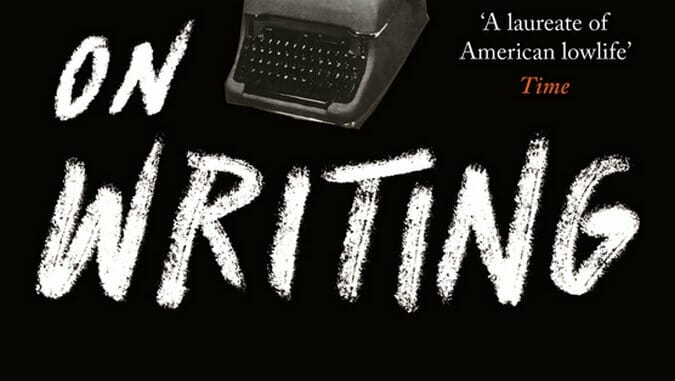On Writing by Charles Bukowski
Edited by Abel Debritto
I’m writing again, a little. [Charles] Shattuck of Accent says he doesn’t see how I can find a publisher for my stuff, but that perhaps someday “public taste will catch up with you.” Christ.
Anyone familiar with the work of Charles Bukowski can predict the advice within On Writing, a collection of hundreds of Bukowski’s letters that meditate on the craft. His process—which goes something like work, drink, write, screw, repeat—cycles through his messages to longtime Black Sparrow Press editor John Martin, contemporary Henry Miller, Bukowski idol John Fante, and Story editor Whit Burnett. Some letters are scathing, some are heartwarming, some are hilarious, but all of them reek of Bukowski’s aura of cigarettes, beer, wine and—if he was lucky—the occasional whiff of cheap perfume.
-

-

-

-

-

-

-

-

-

-

-

-

-

-

-

-

-

-

-

-

-

-

-

-

-

-

-

-

-

-

-

-

-

-

-

-

-

-

-

-









































